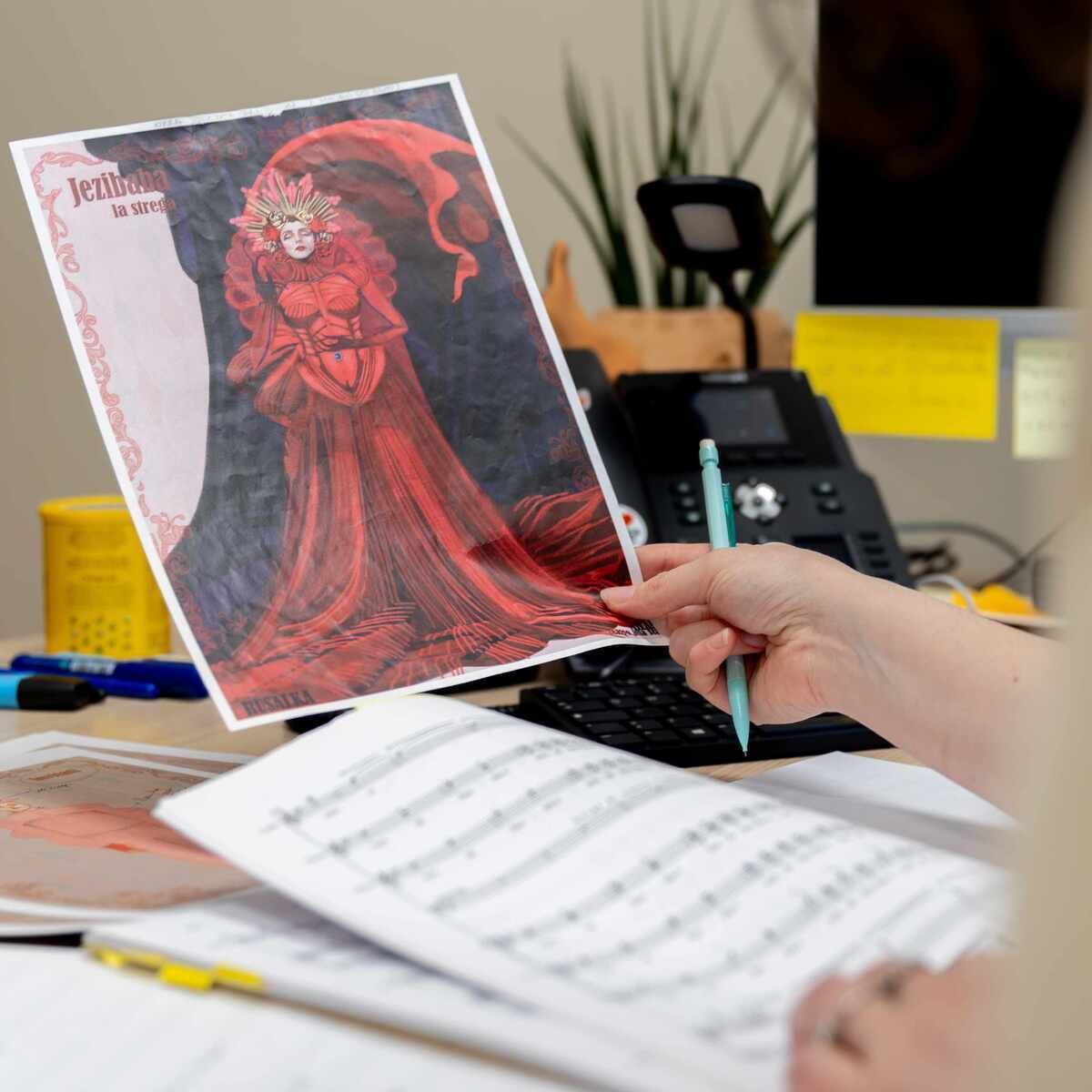CHARACTERIZING UNITS
Assistant director
Marco Monzini, collaborating director Teatro alla Scala
Laura Galmarini, assistant director
Federica Stefani, assistant director
- The professional figure of the theatrical assistant director
- The role of the assistant director during the planning, development and production phases of a show: the pre-production, production and post-production phases
- Directing rehearsals in the studio and on stage
- The study of opera titles
- The preparation of the directing score for conducting an opera performance
- The filming of a performance
- Elements of casting and directing office
- Streaming
Focus on drama theater
Mario Scandale, director
- Role and duties of the assistant director
- The relationship with the director and the company
- Analysis of the dramatic text: structures and functions
- The work with the actor
Field project in collaboration with the Piccolo Teatro di Milano
Professionals of the Piccolo Teatro di Milano
RELATED UNITS
Introduction to professional figures in the performing arts
Umberto Bellodi, coordinator Stage Department Fondazione Accademia Teatro alla Scala
- Getting to know the professional profiles of the performing arts
Institutional arrangements of production and/or hosting entities
Mariano Festa, Institutional Relations, Teatro alla Scala
- The Lyric and Symphonic Foundations.
- Policies, institutions and legislation
Production organization
Maria De Rosa and Nadia Ferrigno, production management, Teatro alla Scala
Andrea Minetto, consultant and project manager
- Production organization for opera houses, festivals and tours
- Focus on production organization and planning at La Scala Theatre
- Music services and the role of the collaborating maestro
Elements of stage direction
La Scala stage directors
Elements of stage technique
Oscar Frosio, lighting designer
Andrea Ferrario, sound designer
Giuseppe Tolva, stagehands department, Teatro alla Scala
Department heads Teatro alla Scala
- Theatrical lighting technology
- Sound technology
- Meeting with Teatro alla Scala department heads: makeup, costume, sound designers, mechanics, rigging, shoemaking
- The organization of the stage, the coexistence of performances
- Specific terminology
Scenotechnics
Ruggero Bellini, head of scenic laboratories, Teatro alla Scala
Stefania Cavallin, assistant director of technical direction, Teatro alla Scala
- Elements of stagecraft and specific vocabulary
- Specific nomenclatures
- Two-dimensional technical drawing, reading and understanding of plans and sections
- Special effects in theater
- Understanding and analysis of sketches, figurines and theaters
- Visits to the workshops of the Teatro alla Scala formerly Ansaldo.
Repertoire analysis and musical dramaturgy
Fabio Sartorelli, musicologist and lecturer
Franco Pulcini, musicologist and essayist
- Acquiring knowledge of the musical repertoire
- Musical itineraries / aspects of dramaturgy
- History of Italian opera from its origins to the first decades of the 20th century
- Analysis and study of some opera titles that will be the subject of study and practical exercise in directing assistance
Archive
Professionals of the Teatro alla Scala
Reading a score
Barbara Patruno, stage director at La Scala Theatre
- Knowing how to read a score for conducting a performance
GENERAL CULTURE UNITS
Between directing and choreography the contemporary dance theater
Francesca Pedroni, journalist, dance and ballet critic and director
A journey into the imagery of choreographers/directors from the 20th century to the present to discover working methods in the relationship with performers, authorial writing in the relationship with music, singing, texts, set design, costumes, the multiplicity of body languages.
- The roots of dance theater in expressionist Germany
- Pina Bausch: the human being in the foreground and the adventure of the Tanztheater Wuppertal
- Dance and opera, a meeting of artistic languages in the directorial relationship between dancers and singers. Examples from Sasha Waltz, Hofesh Shechter, Wayne McGregor, Saburo Teshigawara
- The choreographer-director in contemporary dance theater through the universes of authors of our time such as Alain Platel, Wim Vandekeybus, Marcos Morau, the Peeping Toms, Dimitris Papaioannou.
History of theatrical scenography
Stefania Cavallin, assistant director of technical direction, Teatro alla Scala
Leila Fteita, scenographer
- History of scenography
- The creative process and from sketches to construction drawings to be able to realize it
History of theatrical costume
Chiara Donato, costume designer
- Historical evolution of theatrical costume
- Props from props and tailoring
- The organization of the stage for costume changes
History of theater and music directing
Alberto Bentoglio, full professor in performing arts disciplines
Andrea Malosio, Ph.D. student in performing arts
- The birth of directing in Europe
- Directing and the historical avant-garde
- Directing in Italy: between theater and music
- Directors in comparison
- Directing and opera today: a problem of perspectives
Social history of the Teatro alla Scala
Professionals of the Teatro alla Scala
SELF-ENTREPRENEURSHIP UNITS
Team building for training
Staff Accademia Teatro alla Scala
- Know how to manage relational dynamics within the group in training
- Knowing how to identify the level of learning achieved in dedicated moments in order to verify the educational progress of each participant with respect to the general objectives envisaged by the course
Professional orientation
Marco Aldo Amoruso, director of personnel of Teatro alla Scala
Staff Accademia Teatro alla Scala
- Presenting one's professional profile
- Characteristics of the labor market
- Professional contracts
- Internship orientation pathway
English for live performance
Polly James, native teacher
- English language for the performing arts
Interpersonal and organizational skills
Rita Cannata, HR specialist
- Interpersonal communication
- Analysis of one's soft skills
- Focus on assertiveness, conflict management and negotiation
Safety at work
Michela Songini, prevention, hygiene and safety manager, Teatro alla Scala
Sergio Antonio Tasca, safety sector trainer
- Information related to health and safety protection in the workplace
- General training and specific training: low-risk activities
Visits and testimonials
Industry professionals
- Testimonials from professionals in the performing arts sector



